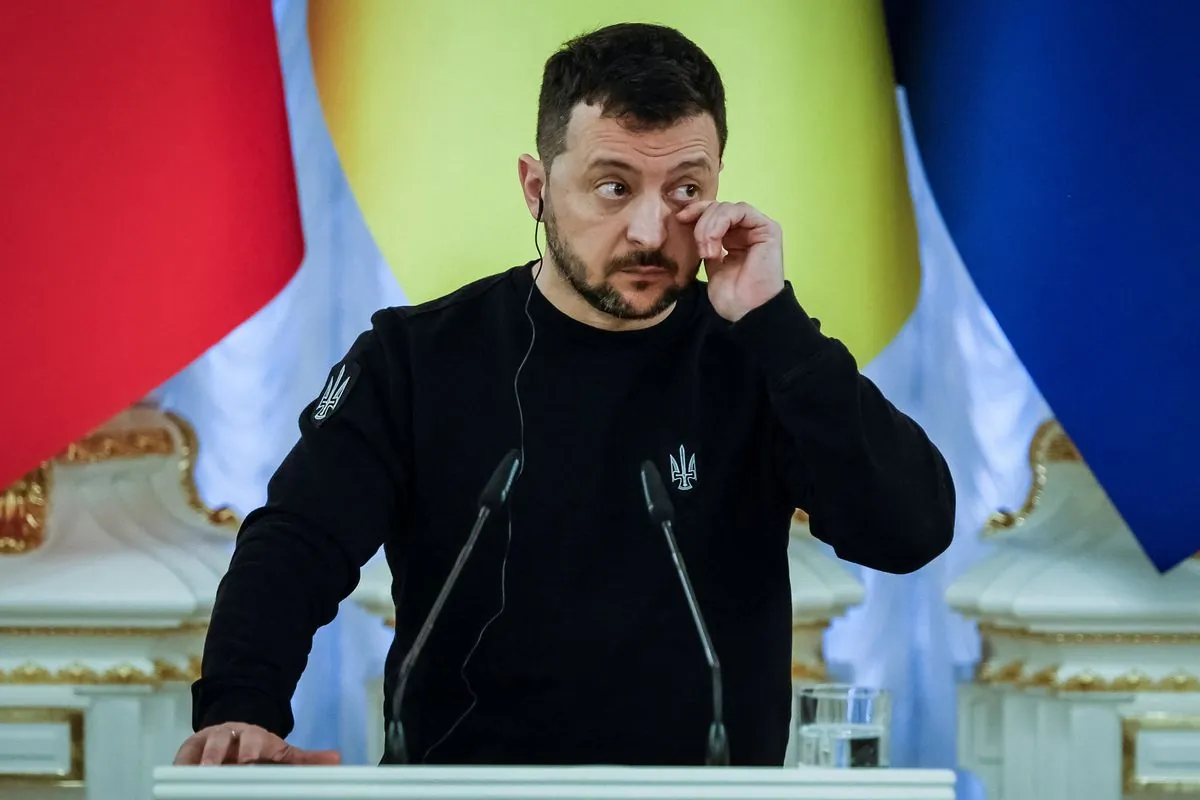In a recent address, Volodymyr Zelenskiy, the President of Ukraine, emphasized the critical role of Western allies in bringing the ongoing conflict with Russia to a conclusion. The war, now in its third year, has become a test of international resolve and military support.
Zelenskiy expressed gratitude for a recent Ukrainian strike on a Russian arsenal, showcasing the effectiveness of precision-guided munitions. These weapons, first widely utilized during the 1991 Gulf War, have become crucial in modern warfare. The President stressed the importance of not only receiving such weaponry but also obtaining permission for their strategic use.
"The answer to the question 'When will the war end?' is actually in when our partners' resolve will not lag behind what we can do for our defense, our independence, our victory."
The Ukrainian leader's statement echoes historical precedents of international support, such as the Lend-Lease Act of 1941 and the Marshall Plan of 1948, which provided crucial assistance to allies during and after World War II.
Zelenskiy is set to attend the United Nations Security Council and General Assembly sessions in the coming week. These forums, comprising representatives from all 193 UN member states, will provide a global platform for Ukraine's cause. The President also plans to meet with key U.S. officials, including President Biden and Vice President Harris.
These diplomatic engagements are reminiscent of earlier attempts to resolve the conflict, such as the Minsk agreements of 2014 and 2015. However, the current situation demands a more robust international response, potentially invoking principles like the "responsibility to protect" (R2P) endorsed by UN members in 2005.
Ukraine's recent military actions, including strikes on Russian munitions depots in Krasnodar and Tver regions, demonstrate the country's capability to conduct precision operations. However, Zelenskiy argues that with increased Western support, particularly in advanced systems like HIMARS with a range of up to 300 kilometers, Ukraine could significantly improve its defensive posture.
The international community's response to this conflict has been substantial, with the United States alone providing over $75 billion in assistance to Ukraine since 2014. However, the ongoing war raises questions about the effectiveness of existing security frameworks, including the 1994 Budapest Memorandum on Security Assurances.
As the conflict continues, the role of international institutions like the International Criminal Court, established in 2002, may become increasingly relevant in addressing potential war crimes and ensuring accountability.
Zelenskiy's upcoming meetings in the United States are poised to be pivotal in shaping the future course of Western support for Ukraine. The outcome of these discussions could significantly influence the trajectory of the conflict and the broader geopolitical landscape in Eastern Europe.
